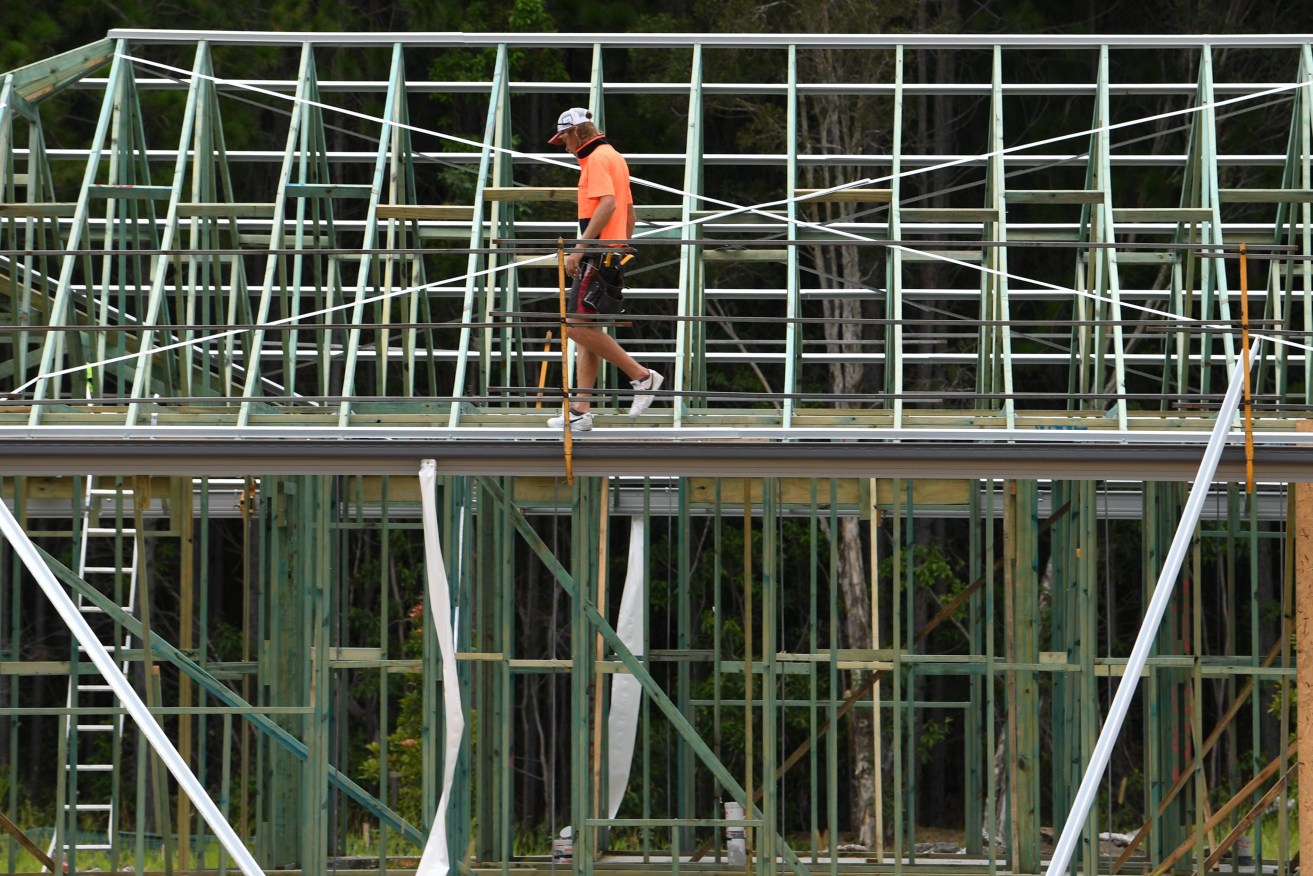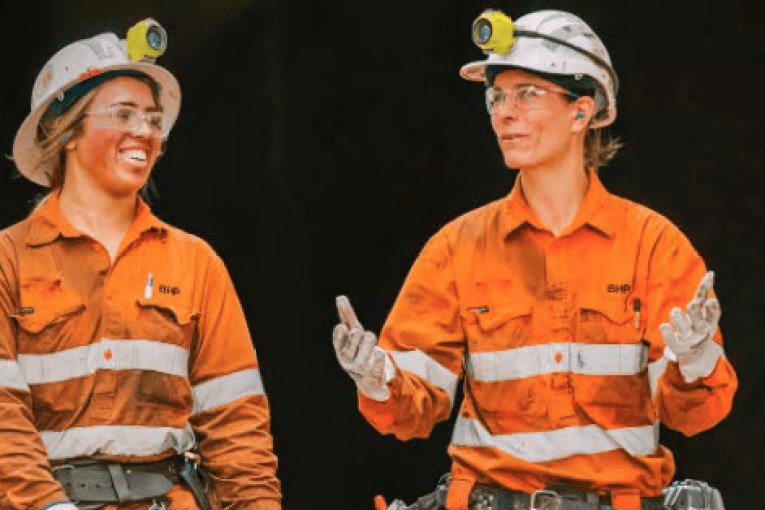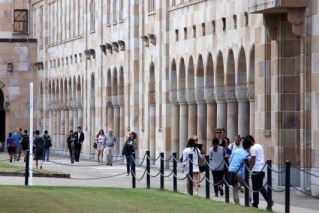No chance: Market walks away from rate hike as housing data gets worse
New housing finance has fallen 30 per cent in the past year in Queensland with investors down almost 40 per cent while money markets have priced in a zero per cent chance of a rate hike on Tuesday.


Australia's economy has grown, slowly, for the seventh consecutive quarter. (AAP Image/Darren England)
According to the Australian Bureau of Statistics, first home buyers last month were down 16 per cent and nation-wide construction-related loan approvals were at 2008 levels.
The ABS data had a glimmer of hope in that dwelling approvals increased in February, but were still down heavily on the past year.
It came as the ANZ-Indeed Job Ads showed a fall of about 7 per cent since September.
Together, the figures could provide more cover for the Reserve Bank board which meets on Tuesday and is expected to pause its rate hikes after 10 rises in a row.
And last week saw the collapse of two more residential building companies, leaving owners stranded with half built or unbuilt homes.
“Weakness in building approvals suggests that housing construction is likely to fall substantially over the next couple of years,” ANZ said.
“This will ultimately exacerbate the housing supply issue. ”
The bank said the shortage of housing was becoming a powerful factor in pricing.
The Housing Industry Association said there could be no justification for further interest rate increases.
“February saw the fewest loans issued for the purchase or construction of a new home in almost 15 years,” HIA chief economist Tim Reardon said.
The number of dwellings approved in Queensland are all over the place. There was an 18 per cent increase in private sector dwelling approvals in February, by far the biggest increase in Australia but total overall dwelling approvals were down 13.7 per cent for the month, by far the worst performance Australia-wide.
That appears to be related to the apartment and townhouse sector. For the year, building approvals in this area were down 55 per cent in Queensland.
While refinancing of loans has soared in recent months to a record high of $13.6 billion, the number of new owner-occupier first home commitments was down 3.5 per cent. It was now down 27 per cent on the February 2020 level.
IFM economist Alex Joiner said building approvals failed to rebound as strongly as expected.
“The decline in residential approvals is entrenched despite volatility. Non-residential approvals also appear to be under pressure, too,” he said.
The Queensland Investment Corporation has tipped a pause in rate hikes and that is also the view of the money market which has priced in a zero chance of a rate move.
Chief economist Matthew Peter said there was growing evidence that inflation had peaked and was slowing.
“Second, we have evidence that the anticipated slowdown in economic growth is occurring. Third, the global banking crisis provides a further rationale to justify a pause in rate hikes; especially as the Fed and other central banks (except for the ECB) slow their pace of monetary tightening.
“Over recent weeks, the RBA has been winding back its rhetoric (established over February and the first week of March) on continuing rate hikes, opening the door for a rate pause. It is also easy to imagine the pressure that RBA Governor Lowe, his senior colleagues and the entire RBA staff must be feeling given the public’s belief in the culpability of the RBA in the financial stress that many households are facing.”












